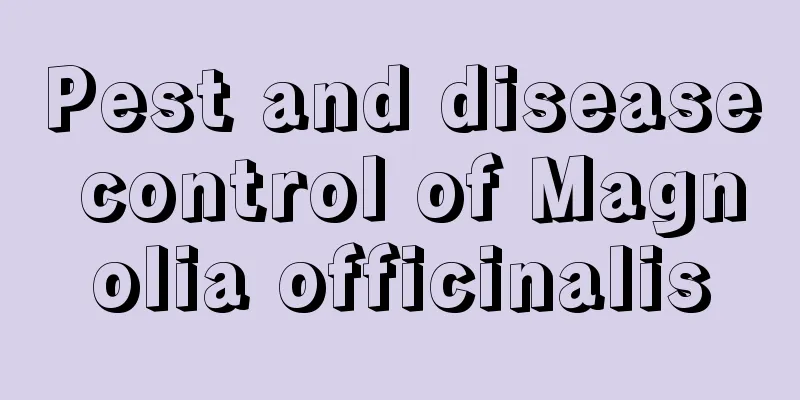Pest and disease control of Magnolia officinalis

Diseases of Magnolia officinalisOnce the Magnolia officinalis tree grows a lot and gradually becomes a forest, various problems will follow. The main diseases are the following two: Root rotAs the name suggests, it means root rot. Generally, this happens when the Magnolia officinalis is still a seedling. If it is accidentally infected by a fungus, the roots will slowly rot, and finally black spots will grow on the stems. Then, a future towering tree will die. Generally, if you do the drainage work in advance and disinfect the soil, there will be basically no problem. Observe at any time. If you find any seedlings with root rot, pull them out and burn them directly. Then sprinkle special medicine on the soil to prevent the spread of the disease. You can also irrigate the seedlings with a certain concentration of lime water. Soil pollutionThis is currently the most lethal problem in the Magnolia officinalis forest. Of course, it is also related to the current environment. If there is haze on that day and the temperature is within a certain range, the disease will basically occur. There will be something like smoke on the leaves and bark of the diseased Magnolia officinalis trees, and then they will begin to grow slowly and weaken. Faced with this situation, there is no good way to solve it. We can only control the density when planting trees to ensure ventilation in the forest. Leaf blightLeaf blight, like root rot, is caused by a fungus, and when it strikes, the leaves simply wilt and then fall off. The solution is to cut off all the dead leaves and branches, and then spray pesticides regularly. PestsThere are indeed many insects that can harm Magnolia officinalis, such as termites, longhorn beetles, moths, etc. termiteTermites can completely eat away the roots of the Magnolia officinalis tree. Solution: When you find the termite nest, use smoke to suffocate them. You can also dig up the termite nest, but make sure not to damage the tree roots. Brown alternating beetleIt will damage the roots of the Magnolia officinalis tree. Solution: Spread pesticides, catch insects, and scrape off insect eggs. |
<<: Huang Qiuying's pest and disease control
Recommend
How to solve the problem of soil fertilizer for balcony vegetable planting (how to fertilize vegetables on the family terrace)
Chives grown on the balcony (photo) Because the l...
What crops are suitable for growing in raw soil?
What crops are suitable for growing in raw soil? ...
It is better to water succulents every few days
How often should I water my succulents? Succulent...
Cultivation methods and precautions of Shengdi
1. Maintenance methods 1. Soil: It has strong ada...
Is creeper a shade or sun-loving plant?
Does creeper prefer shade or sun? Ivy is a shade-...
What should I do if the leaves of Euphorbia obesa are soft? What is the reason for the leaves to wilt?
1. Increase lighting The Euphorbia obesa is a pla...
Do wintersweet flowers prefer shade or sun?
Do wintersweet flowers prefer shade or sun? Winte...
Succulent plants grow from toothpick seedlings to bigger than your face, and this is the reason
Bear Paw How did it grow from a small seedling th...
What fertilizer is good for green radish
1. What fertilizer to use This plant is relativel...
Complete list of sundew varieties
Rainforest Sundew Rainforest sundew is a large ca...
How to plant ice plant and in what season?
Ice plant is a vegetable with high nutritional va...
What is the best fertilizer for hawthorn trees?
Hawthorn tree fertilization time Hawthorn trees n...
Persimmon tree planting time and method cultivation technology and key points
Persimmon tree planting time Persimmon tree is a ...
I bought a pot of it during the Chinese New Year, and it grew into a green waterfall in 20 days. All my relatives and friends were stunned!
Grow asparagus fern into a waterfall to make the ...
How to prune potted fortune trees? Time and method for pruning branches and leaves
Pruning time for potted fortune trees Potted mone...









